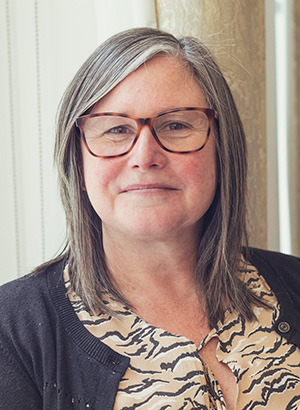-
-
- Advancement of the Professions Committee
- Standards Committee
- Audit and Risk Committee
- Education Committee
- Disciplinary Committee
- Charter Case Committee
- Preliminary Investigation Committee and Disciplinary Committee Liaison Committee
- Registration Committee
- Preliminary Investigation Committee
- Paper classification: some definitions
-
-
-
-
- About extra-mural studies (EMS)
- EMS requirements
- Information for vet students
- Information for EMS providers
- Information for vet schools
- Temporary EMS requirements
- Practice by students - regulations
- Health and safety on EMS placements
- EMS contacts and further guidance
- Extra-mural studies fit for the future
-
-
- Code of Professional Conduct for Veterinary Surgeons
- Code of Professional Conduct for Veterinary Nurses
- Contact the Advice Team
- XL Bully dog ban
- 'Under care' - guidance
- Advice on Schedule 3
- Controlled Drugs Guidance – A to Z
- Dealing with Difficult Situations webinar recordings
- FAQs – Common medicines pitfalls
- FAQs – Routine veterinary practice and clinical veterinary research
- FAQs – Advertising of practice names
- GDPR – RCVS information and Q&As
-
- Accrediting veterinary degrees
- Accrediting veterinary nursing qualifications
- Reasonable adjustments for student vets
- Health and disability in veterinary medicine study and practice
- The role of the veterinary schools and the RCVS
- Reasonable adjustments and the Equality Act 2010
- Reasonable adjustments and Day One Competences
- Examples of reasonable adjustments for vet students
- Annex
- Reasonable adjustments for student vets - summary
- Reasonable adjustments for student veterinary nurses
- Health and disability in veterinary nurse education and training
- Reasonable adjustments for students and the UK disability discrimination legislation
- Educational assessment of veterinary nurses
- Roles of key stakeholders in the application of reasonable adjustments
- Examples of reasonable adjustments for vet nurse students
- Embracing reasonable adjustments for student vet nurses - summary
- External review of the RCVS by ENQA
- Requirements for remote and online student assessments
RCVS supports educators by publishing reasonable adjustment guidance for students
20 June 2025
The RCVS has published two sets of best practice guidance to support educational establishments to make appropriate reasonable adjustments decisions for student veterinary surgeons and student veterinary nurses respectively.
Under the Equality Act 2010, employers and educators are required to put in place reasonable adjustments for employees or students with a disability - defined as a physical and/or mental health condition that has a substantial and long-term impact on a person’s ability to undertake normal daily activities.
 The guidance for student vet and vet nurse educators aims to assist them in developing reasonable adjustment guidance for students with disabilities by providing high-level principles to support consistent decision-making and clarify how reasonable adjustments align with the competence standards for veterinary surgeons and veterinary nurses. The guidance documents also provide examples of the types of reasonable adjustments that could be appropriate in different cases.
The guidance for student vet and vet nurse educators aims to assist them in developing reasonable adjustment guidance for students with disabilities by providing high-level principles to support consistent decision-making and clarify how reasonable adjustments align with the competence standards for veterinary surgeons and veterinary nurses. The guidance documents also provide examples of the types of reasonable adjustments that could be appropriate in different cases.
The guidance is relevant for current students and those applying to become students, with the aim of clarifying how, and to what extent, support can be put in place for students with disabilities, while still ensuring they can meet the competence requirements for registration and a licence to practise in the UK as either a veterinary surgeon or veterinary nurse.
Julie Dugmore (pictured above), our Director of Veterinary Nursing, said: “We have produced these two sets of guidance following feedback from veterinary nurse and veterinary surgeon educational establishments that they needed clearer guidance on how best to support students with disabilities and what to do to ensure they can meet the respective Day One Competences.
“We hope that they will find the practical elements of the guidance useful – with examples of the kind of physical and mental health conditions that may require reasonable adjustments, and how these can be accounted for within educational settings.”
 Dr Linda Prescott-Clements (pictured), RCVS Director of Education, added: “Each educational establishment will need to make decisions on a case-by-case basis and all decisions must be made in the context of the competences, skills and professional behaviours that veterinary surgeons and veterinary nurses must meet upon joining their respective registers. We hope that providing this high-level information will help educators with the decision-making processes.”
Dr Linda Prescott-Clements (pictured), RCVS Director of Education, added: “Each educational establishment will need to make decisions on a case-by-case basis and all decisions must be made in the context of the competences, skills and professional behaviours that veterinary surgeons and veterinary nurses must meet upon joining their respective registers. We hope that providing this high-level information will help educators with the decision-making processes.”
The reasonable adjustments guidance for veterinary nurses is available to read at: Reasonable adjustments for student veterinary nurses - Professionals
The guidance for veterinary surgeons is available at: Reasonable adjustments for student vets - Professionals
PDF document versions of the guidance are also available to download from the webpages above.